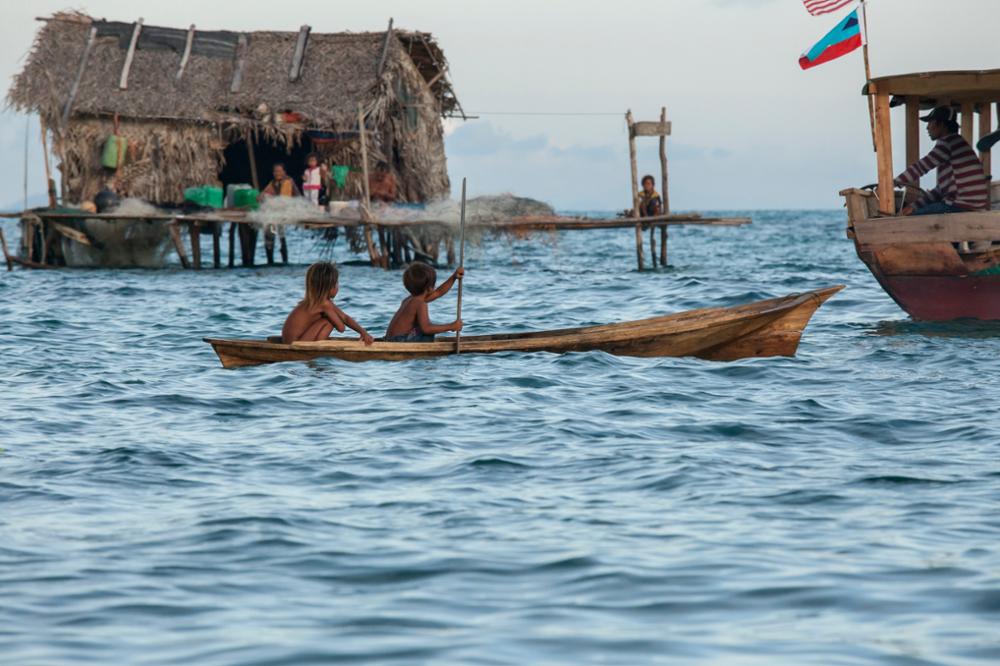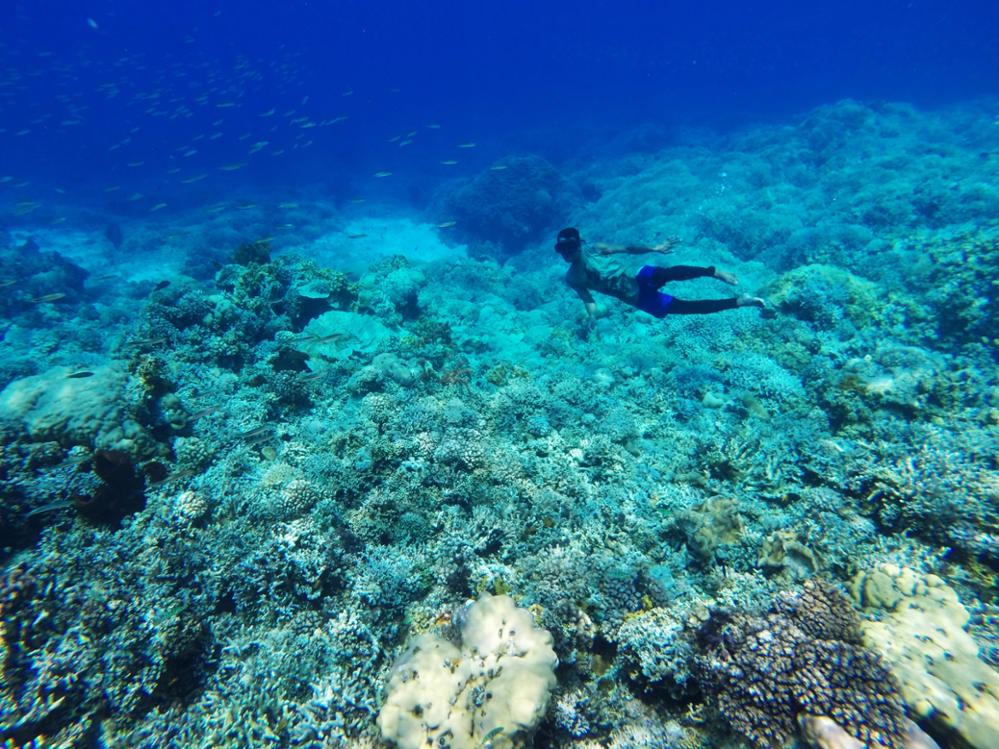Indonesia
Meeting with the Bajau people, the nomads of the sea
Traveling to Indonesia is an opportunity to discover the Badjaos, an ethnic group living on the coasts of the island of Sulawesi, Sumatra, the Sunda Islands and Borneo. Installed in villages on stilts, this extraordinary community is known for its diving skills and its atypical way of life... Meeting with the Bajau people, the nomads of the sea.
The Bajau people: who are the “sea gypsies”?
Their story

Members of the Bajau people live in Southeast Asia. They are found in particular in the Philippines, Malaysia and Indonesia. In an ultra-modern and connected era, these men and women live totally cut off from contemporary society and free from all time constraints, since they live without worrying about the time or the calendar! This community also lives without hierarchical notions or gender distinctions.
This self-sufficient life would have its sources in their migratory history. Indeed, having been unable to settle on the continent, the Bajau decided to cut all ties with the mainland and settle at sea. Nicknamed the “sea gypsies”, because of their nomadic life , the Bajau are a stateless people, living in floating houses. Their villages on stilts do not appear on any map!
Their way of life
To feed themselves, the Bajau spend almost all their days at sea. Aboard a canoe, they navigate and search the seabed in search of food. Thanks to a small trap installed at the bottom of their boat, they listen to the sounds emitted by the fish and thus detect areas suitable for fishing. In 2004, this ability to listen allowed them to distinguish the seismic movements of the December 26 tsunami, produced off the coast of Sumatra, and to alert tourists present on the scene.
The Bajau and freediving: a genetically modified people of divers
The origin of their genetic mutation

The Bajau are especially renowned for their apnea performances: they can swim up to 60 meters deep without any equipment other than a wooden mask, and without breathing for 13 minutes! Although they seem incredible, these feats are not a myth but the result of a genetic mutation.
A study, carried out on site in 2018, by a researcher from the scientific journal Cell, demonstrated that the spleens of the Bajau were twice as large as those of the Saluan people – a neighboring ethnic group having interactions with the marine environment, but which does not dive, unlike the Bajau, who were introduced to freediving from a very young age...
In other words, the body of the Bajau has naturally modified over time and adapted to their activity and their way of life! Their performances today are very close to those of certain marine mammals, such as seals which spend most of their time in the water and which also have a disproportionately large spleen.
The future of these atypical fishermen
If the Bajau once used dynamite to catch a lot of fish, they now only work with nets. In particular, they fish for “sea cucumbers” which, contrary to their plant name, are sea animals – very popular with Indonesians.
The Bajau people are unfortunately threatened with extinction. The reasons ? A nomadic lifestyle too far from the modern world (considered marginal, the Bajau do not enjoy the same rights as citizens living on the continent!) and competition from industrial fishing which weakens their activity. In fact, more and more Bajau are leaving the sea.
Meeting with the Bajau: places to see the tribe
To admire the superb lakeside towns of Badjaos, head to:
The island of Sumatra
Located in West Indonesia, Sumatra is the seventh largest island in the world, with its 470,000 km²! To catch a glimpse of the Bajau, you will need to explore its coastline and visit the neighboring islands Bangka and Belitung.
The island of Sulawesi (Celebes)
To meet the Bajau people, explore the coasts of the island of Sulawesi. Located 300 km east of Borneo, Celebes extends over 189,035 km2 and is home to many ethnic groups, including the Toraja and Bugis tribes.
The Sunda Islands and the island of Borneo
The Badjos are also settled on the Togian and Banggai islands, located in the Sunda Islands archipelago spread between Indonesia, Malaysia and Brunei – a micro-state located in the north of Borneo (located facing the island of Sulawesi), where the Moken people also live. The Bajau community is also present in Komodo National Park (located in the Lesser Sunda Islands).
Audrey Denjean

